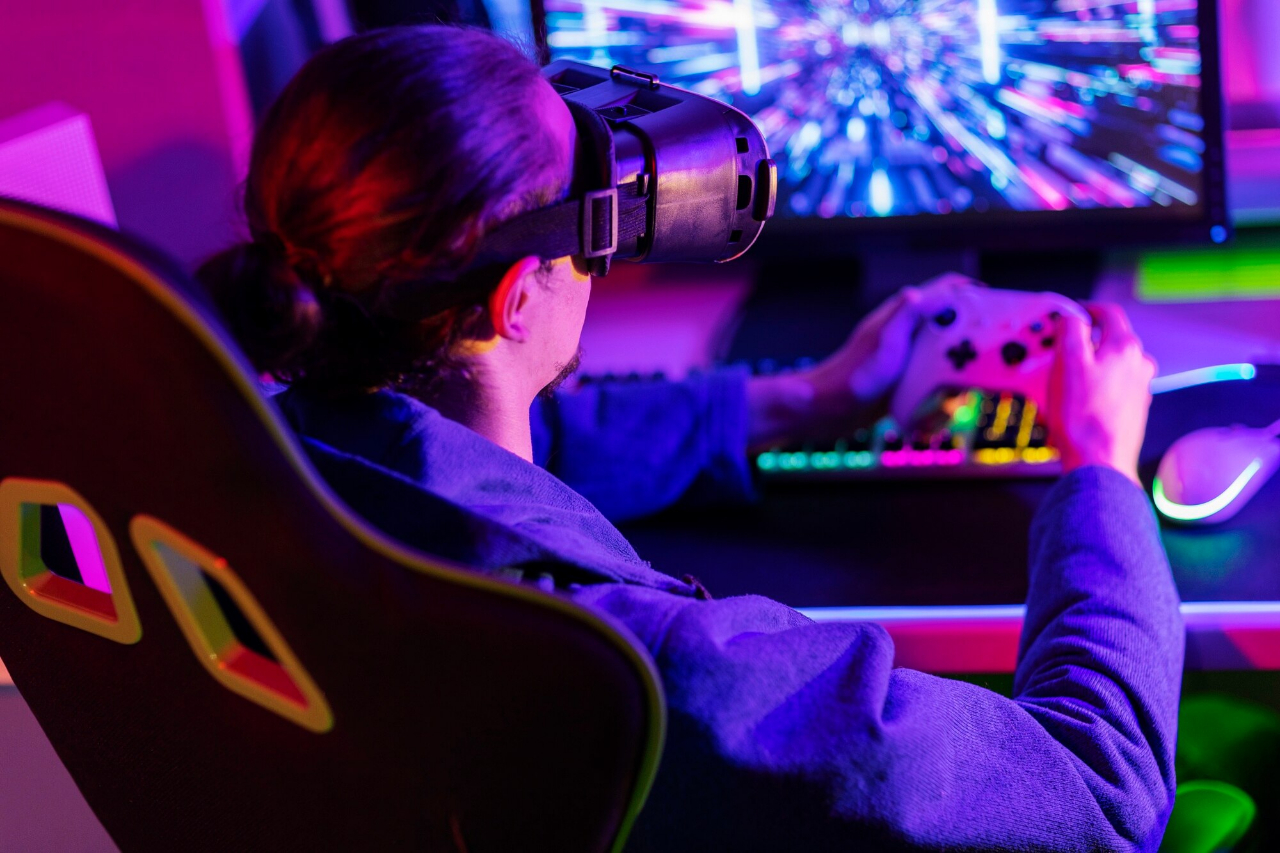The evolution of gaming culture: From arcades to virtual reality

Discover how gaming has transformed from simple pixel entertainment to a cultural phenomenon shaping modern society. From the nostalgic charm of arcade machines to cutting-edge VR technology, explore how gaming influences entertainment, social connections and lifestyle choices. Whether you’re a casual player or a hardcore enthusiast, this journey through gaming’s evolution reveals its impact on contemporary culture.
The gaming landscape has undergone a remarkable transformation since the days of Pong and Space Invaders. What began as a niche hobby in dimly lit arcade halls has blossomed into a multi-billion-pound industry that influences everything from fashion to film. Today’s gaming culture extends far beyond mere entertainment, creating communities, careers and cultural movements that reshape how we interact with technology and each other.
The rise of digital entertainment
Gaming’s journey from arcade cabinets to home consoles marked the beginning of a cultural revolution. While traditional entertainment venues like casinos not on Gamstop continue to find space online, offering various gaming options for different preferences, the video game industry has carved its own unique path.
Modern gaming platforms have evolved to become entertainment hubs, streaming services and social networks all rolled into one. This transformation has fundamentally changed how we consume media, connect with others and spend our leisure time. The integration of cloud gaming services and cross-platform play has further democratised access to gaming, making it more accessible than ever before.
Gaming’s influence on popular culture
The impact of gaming on mainstream culture has grown exponentially in recent years. From Mario’s iconic overalls to The Last of Us television adaptation, gaming’s influence on popular culture is undeniable. Fashion designers now collaborate with game developers for virtual clothing lines, while musicians create entire albums inspired by game soundtracks.
This cross-pollination of creative industries has led to a rich tapestry of cultural expression, where gaming aesthetics and references appear everywhere from high fashion runways to contemporary art galleries. Major brands increasingly partner with game developers to create unique in-game experiences, whilst gaming-inspired merchandise has become a billion-pound industry in its own right.
The social gaming revolution
The evolution of gaming from a solitary pursuit to a social phenomenon represents one of the most significant shifts in digital entertainment. Online multiplayer games create virtual spaces where millions gather daily to compete, cooperate and connect. These digital environments foster friendships across continents, breaking down geographical barriers and cultural differences.
Communities form around shared gaming experiences, leading to real-world meetups, conventions and lasting relationships that transcend the digital realm. Social media integration and streaming platforms like Twitch have created new forms of entertainment where watching others play becomes as engaging as playing itself.
The economics of gaming
The gaming industry has evolved into an economic powerhouse that rivals traditional entertainment sectors. From mobile gaming to AAA titles, the industry generates massive revenue through diverse monetisation strategies. In-game purchases, subscription services and downloadable content have created new business models that sustain continuous development and engagement.
The rise of professional gaming has created new career opportunities, from esports athletes to content creators and game developers. This economic ecosystem has attracted significant investment from traditional media companies and tech giants, further legitimising gaming as a mainstream entertainment medium.
Technology and innovation
The gaming industry continues to push technological boundaries with innovations that extend far beyond entertainment. Virtual and augmented reality represent gaming’s next frontier, promising to blur the line between digital and physical worlds. These technologies offer immersive experiences that were once confined to science fiction, from educational applications to virtual concerts within game worlds.
The industry’s relentless pursuit of innovation drives advancements in graphics, artificial intelligence and user interface design. Emerging technologies like blockchain gaming and AI-driven narratives are opening new possibilities for interactive entertainment and digital ownership.
The future of gaming culture
As gaming technology advances, its cultural impact grows increasingly significant. Esports tournaments now fill stadiums and attract millions of viewers worldwide, while gaming influencers shape trends and consumer behaviour. The metaverse concept, largely driven by gaming innovation, suggests a future where virtual and physical realities seamlessly integrate.
This evolution demonstrates gaming’s transformation from simple entertainment into a powerful cultural force that continues to shape our world in surprising and meaningful ways. The convergence of gaming with other technologies like artificial intelligence and extended reality points to a future where the boundaries between different forms of digital entertainment become increasingly blurred.
Gaming’s environmental impact and sustainability
The gaming industry’s environmental footprint has become an increasingly important topic of discussion within the community. Major developers and console manufacturers are now implementing eco-friendly initiatives, from sustainable packaging to energy-efficient hardware design. Cloud gaming services promise to reduce the need for physical hardware, potentially decreasing electronic waste, while digital distribution has significantly reduced the environmental impact of physical game production and distribution.
Gaming companies are also using their platforms to raise awareness about environmental issues, incorporating climate change themes into narratives and creating games that educate players about sustainability. These efforts reflect a growing consciousness within the industry about its responsibility to address environmental concerns while continuing to innovate and entertain.
Beyond entertainment, gaming technology now revolutionises healthcare through rehabilitation programmes and surgical training platforms, whilst corporations harness game-based learning for employee development. From military simulations to architectural visualisation tools, gaming’s DNA can be found in countless professional applications.
This transformation from pixelated pastimes to sophisticated solutions exemplifies how gaming has evolved into an influential force that reaches far beyond its entertainment roots, reshaping industries and innovating approaches to complex real-world challenges.
The editorial unit
























Facebook
Twitter
Instagram
YouTube
RSS